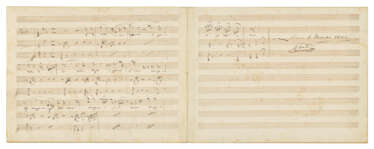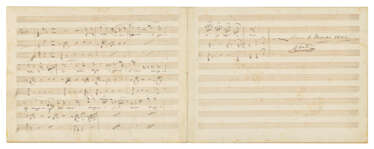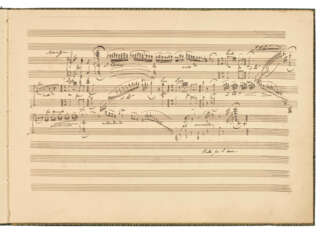джузеппе верди (1813 - 1901)
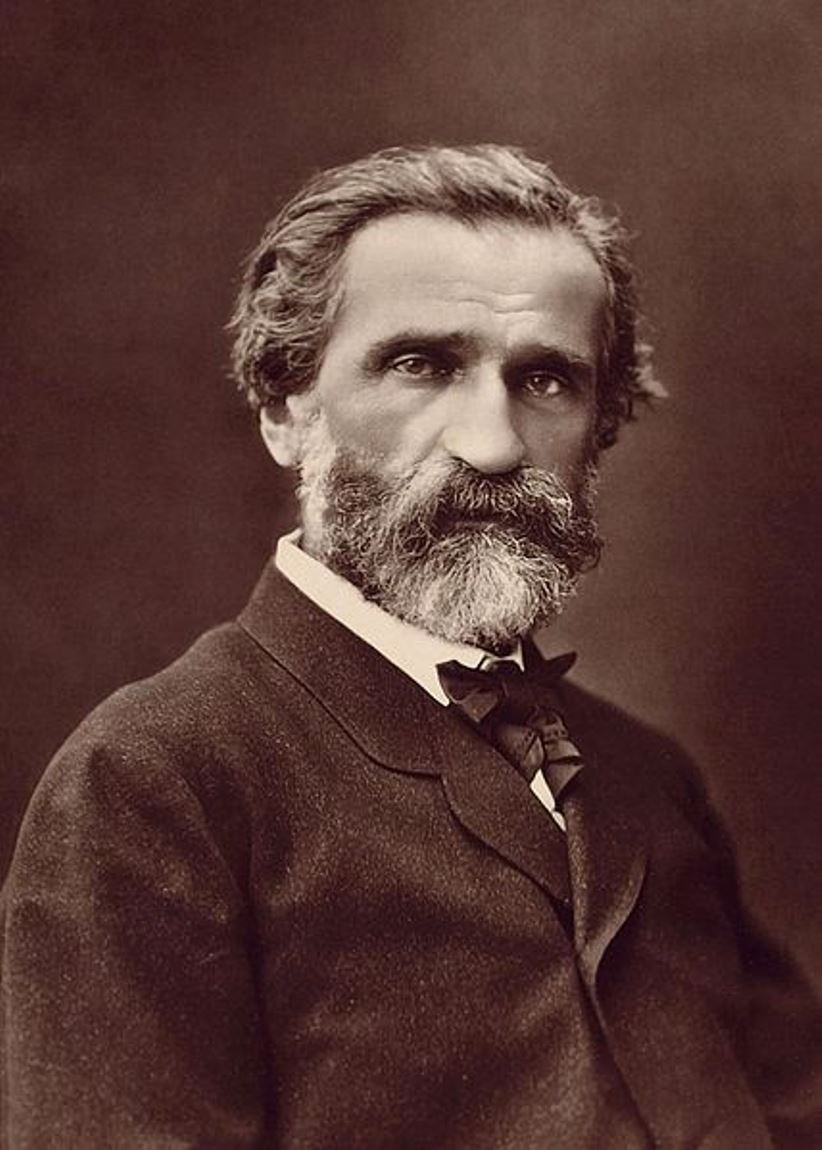
Giuseppe Verdi, full name Giuseppe Fortunino Francesco Verdi, was an Italian opera composer.
The son of a village innkeeper, Giuseppe showed musical talent very early, already playing the organ in church by the age of nine. He studied music in Milan, taught, and in March 1839 staged his first opera "Oberto, conte di San Bonifacio" at La Scala. In 1842 Verdi's opera "Nabucco" was a great success, passing through all the major theaters of Europe.
Verdi wrote a total of 26 operas during his career, the most famous of which are Rigoletto (1851), Trovatore (1853), La Traviata (1853), Don Carlos (1867), Aida (1871), Otello (1887) and Falstaff (1893).
In 1873, Giuseppe Verdi decided to retire from the world of opera. He settled in Sant'Agata, where he became a large landowner and a very wealthy man due to his tireless work in agriculture, he also financed large charitable organizations.
Verdi took a break from these activities for his opera Otello, but after a successful tour of Europe with it, he retreated again to Sant'Agata. The work of Giuseppe Verdi is one of the greatest achievements of world opera art. Many generations of opera lovers still enjoy the composer's brilliant works.


Giuseppe Verdi, full name Giuseppe Fortunino Francesco Verdi, was an Italian opera composer.
The son of a village innkeeper, Giuseppe showed musical talent very early, already playing the organ in church by the age of nine. He studied music in Milan, taught, and in March 1839 staged his first opera "Oberto, conte di San Bonifacio" at La Scala. In 1842 Verdi's opera "Nabucco" was a great success, passing through all the major theaters of Europe.
Verdi wrote a total of 26 operas during his career, the most famous of which are Rigoletto (1851), Trovatore (1853), La Traviata (1853), Don Carlos (1867), Aida (1871), Otello (1887) and Falstaff (1893).
In 1873, Giuseppe Verdi decided to retire from the world of opera. He settled in Sant'Agata, where he became a large landowner and a very wealthy man due to his tireless work in agriculture, he also financed large charitable organizations.
Verdi took a break from these activities for his opera Otello, but after a successful tour of Europe with it, he retreated again to Sant'Agata. The work of Giuseppe Verdi is one of the greatest achievements of world opera art. Many generations of opera lovers still enjoy the composer's brilliant works.


Giuseppe Verdi, full name Giuseppe Fortunino Francesco Verdi, was an Italian opera composer.
The son of a village innkeeper, Giuseppe showed musical talent very early, already playing the organ in church by the age of nine. He studied music in Milan, taught, and in March 1839 staged his first opera "Oberto, conte di San Bonifacio" at La Scala. In 1842 Verdi's opera "Nabucco" was a great success, passing through all the major theaters of Europe.
Verdi wrote a total of 26 operas during his career, the most famous of which are Rigoletto (1851), Trovatore (1853), La Traviata (1853), Don Carlos (1867), Aida (1871), Otello (1887) and Falstaff (1893).
In 1873, Giuseppe Verdi decided to retire from the world of opera. He settled in Sant'Agata, where he became a large landowner and a very wealthy man due to his tireless work in agriculture, he also financed large charitable organizations.
Verdi took a break from these activities for his opera Otello, but after a successful tour of Europe with it, he retreated again to Sant'Agata. The work of Giuseppe Verdi is one of the greatest achievements of world opera art. Many generations of opera lovers still enjoy the composer's brilliant works.
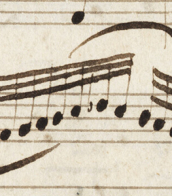

Giuseppe Verdi, full name Giuseppe Fortunino Francesco Verdi, was an Italian opera composer.
The son of a village innkeeper, Giuseppe showed musical talent very early, already playing the organ in church by the age of nine. He studied music in Milan, taught, and in March 1839 staged his first opera "Oberto, conte di San Bonifacio" at La Scala. In 1842 Verdi's opera "Nabucco" was a great success, passing through all the major theaters of Europe.
Verdi wrote a total of 26 operas during his career, the most famous of which are Rigoletto (1851), Trovatore (1853), La Traviata (1853), Don Carlos (1867), Aida (1871), Otello (1887) and Falstaff (1893).
In 1873, Giuseppe Verdi decided to retire from the world of opera. He settled in Sant'Agata, where he became a large landowner and a very wealthy man due to his tireless work in agriculture, he also financed large charitable organizations.
Verdi took a break from these activities for his opera Otello, but after a successful tour of Europe with it, he retreated again to Sant'Agata. The work of Giuseppe Verdi is one of the greatest achievements of world opera art. Many generations of opera lovers still enjoy the composer's brilliant works.


Giuseppe Verdi, full name Giuseppe Fortunino Francesco Verdi, was an Italian opera composer.
The son of a village innkeeper, Giuseppe showed musical talent very early, already playing the organ in church by the age of nine. He studied music in Milan, taught, and in March 1839 staged his first opera "Oberto, conte di San Bonifacio" at La Scala. In 1842 Verdi's opera "Nabucco" was a great success, passing through all the major theaters of Europe.
Verdi wrote a total of 26 operas during his career, the most famous of which are Rigoletto (1851), Trovatore (1853), La Traviata (1853), Don Carlos (1867), Aida (1871), Otello (1887) and Falstaff (1893).
In 1873, Giuseppe Verdi decided to retire from the world of opera. He settled in Sant'Agata, where he became a large landowner and a very wealthy man due to his tireless work in agriculture, he also financed large charitable organizations.
Verdi took a break from these activities for his opera Otello, but after a successful tour of Europe with it, he retreated again to Sant'Agata. The work of Giuseppe Verdi is one of the greatest achievements of world opera art. Many generations of opera lovers still enjoy the composer's brilliant works.


Giuseppe Verdi, full name Giuseppe Fortunino Francesco Verdi, was an Italian opera composer.
The son of a village innkeeper, Giuseppe showed musical talent very early, already playing the organ in church by the age of nine. He studied music in Milan, taught, and in March 1839 staged his first opera "Oberto, conte di San Bonifacio" at La Scala. In 1842 Verdi's opera "Nabucco" was a great success, passing through all the major theaters of Europe.
Verdi wrote a total of 26 operas during his career, the most famous of which are Rigoletto (1851), Trovatore (1853), La Traviata (1853), Don Carlos (1867), Aida (1871), Otello (1887) and Falstaff (1893).
In 1873, Giuseppe Verdi decided to retire from the world of opera. He settled in Sant'Agata, where he became a large landowner and a very wealthy man due to his tireless work in agriculture, he also financed large charitable organizations.
Verdi took a break from these activities for his opera Otello, but after a successful tour of Europe with it, he retreated again to Sant'Agata. The work of Giuseppe Verdi is one of the greatest achievements of world opera art. Many generations of opera lovers still enjoy the composer's brilliant works.


Giuseppe Verdi, full name Giuseppe Fortunino Francesco Verdi, was an Italian opera composer.
The son of a village innkeeper, Giuseppe showed musical talent very early, already playing the organ in church by the age of nine. He studied music in Milan, taught, and in March 1839 staged his first opera "Oberto, conte di San Bonifacio" at La Scala. In 1842 Verdi's opera "Nabucco" was a great success, passing through all the major theaters of Europe.
Verdi wrote a total of 26 operas during his career, the most famous of which are Rigoletto (1851), Trovatore (1853), La Traviata (1853), Don Carlos (1867), Aida (1871), Otello (1887) and Falstaff (1893).
In 1873, Giuseppe Verdi decided to retire from the world of opera. He settled in Sant'Agata, where he became a large landowner and a very wealthy man due to his tireless work in agriculture, he also financed large charitable organizations.
Verdi took a break from these activities for his opera Otello, but after a successful tour of Europe with it, he retreated again to Sant'Agata. The work of Giuseppe Verdi is one of the greatest achievements of world opera art. Many generations of opera lovers still enjoy the composer's brilliant works.


Giuseppe Verdi, full name Giuseppe Fortunino Francesco Verdi, was an Italian opera composer.
The son of a village innkeeper, Giuseppe showed musical talent very early, already playing the organ in church by the age of nine. He studied music in Milan, taught, and in March 1839 staged his first opera "Oberto, conte di San Bonifacio" at La Scala. In 1842 Verdi's opera "Nabucco" was a great success, passing through all the major theaters of Europe.
Verdi wrote a total of 26 operas during his career, the most famous of which are Rigoletto (1851), Trovatore (1853), La Traviata (1853), Don Carlos (1867), Aida (1871), Otello (1887) and Falstaff (1893).
In 1873, Giuseppe Verdi decided to retire from the world of opera. He settled in Sant'Agata, where he became a large landowner and a very wealthy man due to his tireless work in agriculture, he also financed large charitable organizations.
Verdi took a break from these activities for his opera Otello, but after a successful tour of Europe with it, he retreated again to Sant'Agata. The work of Giuseppe Verdi is one of the greatest achievements of world opera art. Many generations of opera lovers still enjoy the composer's brilliant works.


Giuseppe Verdi, full name Giuseppe Fortunino Francesco Verdi, was an Italian opera composer.
The son of a village innkeeper, Giuseppe showed musical talent very early, already playing the organ in church by the age of nine. He studied music in Milan, taught, and in March 1839 staged his first opera "Oberto, conte di San Bonifacio" at La Scala. In 1842 Verdi's opera "Nabucco" was a great success, passing through all the major theaters of Europe.
Verdi wrote a total of 26 operas during his career, the most famous of which are Rigoletto (1851), Trovatore (1853), La Traviata (1853), Don Carlos (1867), Aida (1871), Otello (1887) and Falstaff (1893).
In 1873, Giuseppe Verdi decided to retire from the world of opera. He settled in Sant'Agata, where he became a large landowner and a very wealthy man due to his tireless work in agriculture, he also financed large charitable organizations.
Verdi took a break from these activities for his opera Otello, but after a successful tour of Europe with it, he retreated again to Sant'Agata. The work of Giuseppe Verdi is one of the greatest achievements of world opera art. Many generations of opera lovers still enjoy the composer's brilliant works.


Giuseppe Verdi, full name Giuseppe Fortunino Francesco Verdi, was an Italian opera composer.
The son of a village innkeeper, Giuseppe showed musical talent very early, already playing the organ in church by the age of nine. He studied music in Milan, taught, and in March 1839 staged his first opera "Oberto, conte di San Bonifacio" at La Scala. In 1842 Verdi's opera "Nabucco" was a great success, passing through all the major theaters of Europe.
Verdi wrote a total of 26 operas during his career, the most famous of which are Rigoletto (1851), Trovatore (1853), La Traviata (1853), Don Carlos (1867), Aida (1871), Otello (1887) and Falstaff (1893).
In 1873, Giuseppe Verdi decided to retire from the world of opera. He settled in Sant'Agata, where he became a large landowner and a very wealthy man due to his tireless work in agriculture, he also financed large charitable organizations.
Verdi took a break from these activities for his opera Otello, but after a successful tour of Europe with it, he retreated again to Sant'Agata. The work of Giuseppe Verdi is one of the greatest achievements of world opera art. Many generations of opera lovers still enjoy the composer's brilliant works.


Giuseppe Verdi, full name Giuseppe Fortunino Francesco Verdi, was an Italian opera composer.
The son of a village innkeeper, Giuseppe showed musical talent very early, already playing the organ in church by the age of nine. He studied music in Milan, taught, and in March 1839 staged his first opera "Oberto, conte di San Bonifacio" at La Scala. In 1842 Verdi's opera "Nabucco" was a great success, passing through all the major theaters of Europe.
Verdi wrote a total of 26 operas during his career, the most famous of which are Rigoletto (1851), Trovatore (1853), La Traviata (1853), Don Carlos (1867), Aida (1871), Otello (1887) and Falstaff (1893).
In 1873, Giuseppe Verdi decided to retire from the world of opera. He settled in Sant'Agata, where he became a large landowner and a very wealthy man due to his tireless work in agriculture, he also financed large charitable organizations.
Verdi took a break from these activities for his opera Otello, but after a successful tour of Europe with it, he retreated again to Sant'Agata. The work of Giuseppe Verdi is one of the greatest achievements of world opera art. Many generations of opera lovers still enjoy the composer's brilliant works.
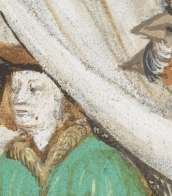

Giuseppe Verdi, full name Giuseppe Fortunino Francesco Verdi, was an Italian opera composer.
The son of a village innkeeper, Giuseppe showed musical talent very early, already playing the organ in church by the age of nine. He studied music in Milan, taught, and in March 1839 staged his first opera "Oberto, conte di San Bonifacio" at La Scala. In 1842 Verdi's opera "Nabucco" was a great success, passing through all the major theaters of Europe.
Verdi wrote a total of 26 operas during his career, the most famous of which are Rigoletto (1851), Trovatore (1853), La Traviata (1853), Don Carlos (1867), Aida (1871), Otello (1887) and Falstaff (1893).
In 1873, Giuseppe Verdi decided to retire from the world of opera. He settled in Sant'Agata, where he became a large landowner and a very wealthy man due to his tireless work in agriculture, he also financed large charitable organizations.
Verdi took a break from these activities for his opera Otello, but after a successful tour of Europe with it, he retreated again to Sant'Agata. The work of Giuseppe Verdi is one of the greatest achievements of world opera art. Many generations of opera lovers still enjoy the composer's brilliant works.
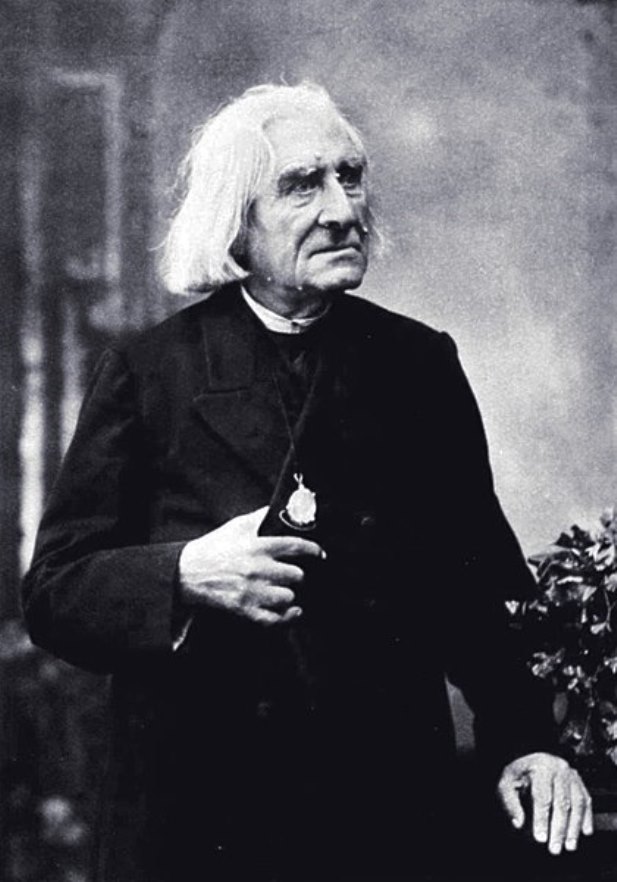
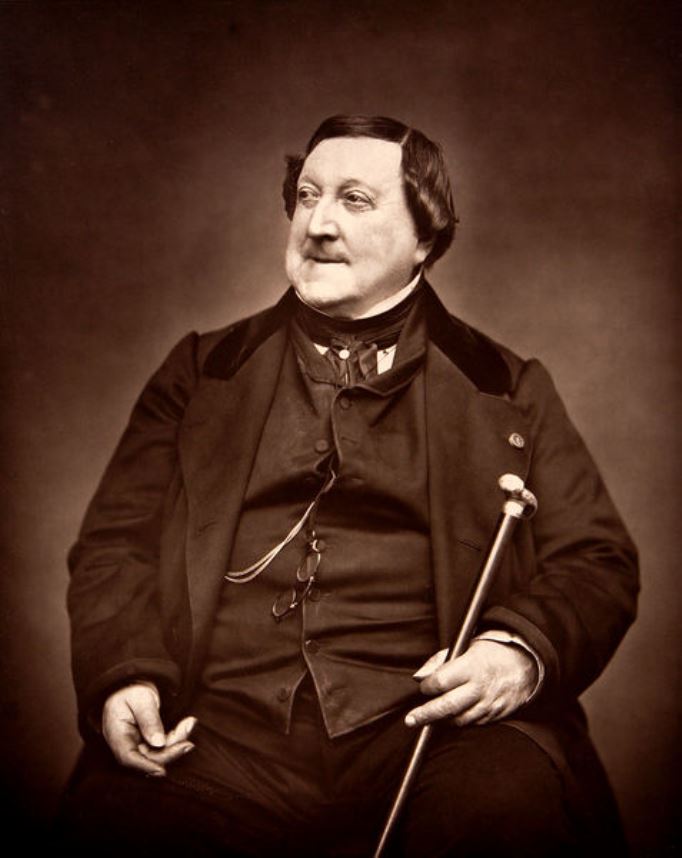

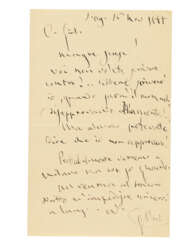

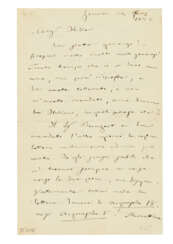

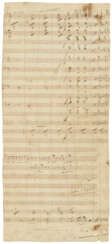

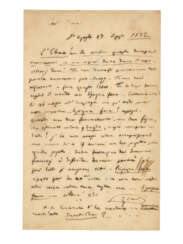

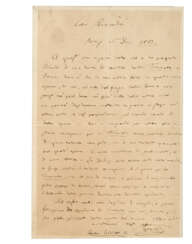

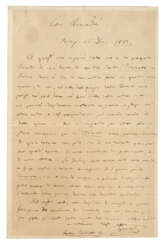

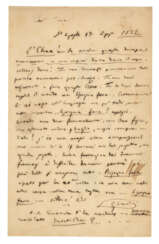

![Francesco Maria Piave (1810-1876) – [Giuseppe Verdi (1813-1901)]](/assets/image/picture_4361092/b52dd/9bf0c3aa8d8cf02c8a808d9e3da16cac1733871600jpg__fix_374_244.jpeg)
![Francesco Maria Piave (1810-1876) – [Giuseppe Verdi (1813-1901)]](https://veryimportantlot.com/assets/image/picture_4361092/b52dd/9bf0c3aa8d8cf02c8a808d9e3da16cac1733871600jpg__fix_374_244.jpeg)


